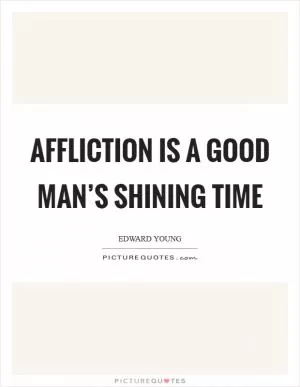Gold glitters most where virtue shines no more, as stars from absent suns have leave to shine

Gold glitters most where virtue shines no more, as stars from absent suns have leave to shine
Edward Young was an English poet and playwright who lived during the 18th century. He was known for his satirical and moralistic works, which often explored themes of virtue, vice, and the fleeting nature of worldly success. One of his most famous works is the poem "Night Thoughts," a series of meditations on life, death, and the afterlife.In the context of Young's work, the quote "Gold glitters most where virtue shines no more, as stars from absent suns have leave to shine" can be interpreted as a commentary on the corrupting influence of wealth and power. Young believed that true virtue and moral integrity were more valuable than material riches, and that those who lacked virtue would ultimately be consumed by their own greed and ambition.
The comparison of gold to stars from absent suns is particularly poignant, as it suggests that wealth and success are ultimately hollow and meaningless without a foundation of virtue and goodness. Just as stars can only shine in the absence of the sun, so too can the glitter of gold only be truly appreciated in the absence of true virtue.
Young's work often explored the idea of the transience of worldly success and the importance of cultivating inner virtue and moral strength. He believed that true happiness and fulfillment could only be found through a life lived in accordance with moral principles and ethical values.












 Friendship Quotes
Friendship Quotes Love Quotes
Love Quotes Life Quotes
Life Quotes Funny Quotes
Funny Quotes Motivational Quotes
Motivational Quotes Inspirational Quotes
Inspirational Quotes